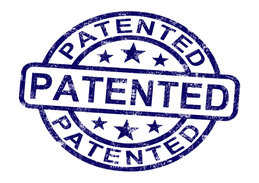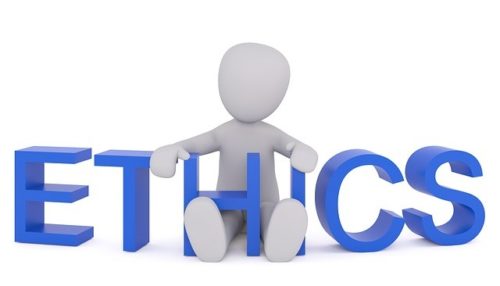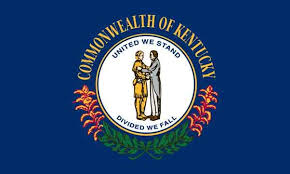-
Fundamentals of Civil Litigation in Federal Court In this timely, and compelling, CLE course Attorney Thomas R. Schuck covers the Fundamentals of Civil Litigation in Federal Court. The program begins with an overview of how to commence an action and case management. Attorney Schuck continues by going over the process of summary judgment, arbitration, and trial. Mr. Schuck concludes the program with a discussion on judgments and appeals. This program is a must listen for anyone who wishes to learn more about the FRCP. Agenda Commencing An Action Case Management and Discovery Summary Judgement Arbitration and Mediation Trial Judgement and Post Judgement Issues Appeal
-
Fundamentals of Patent Prosecution - 2.0 Credit Hours In this timely, and compelling, CLE program Attorney Tyler Dunham covers Patent Prosecution or alternatively: The Basics of How to Obtain a Patent. Attorney Dunham will take participants, from beginning, to the end of how to obtain a patent. The program begins with information about the USPTO and types of patents. Mr. Dunham will continue the program with an explanation of the application process and the paperwork involved. Mr. Dunham will, also, cover the prosecution process in great detail. The program will conclude with a discussion on international patents and patent enforcement. This program is for anyone who wishes to learn more about patents and the patent process. Agenda General Info About the USPTO What Types of Tech can be Patented? 35 USC 101 What Types of Tech cannot be Patented? Who Can File Patent Applications? Types of Applications Other Miscellaneous Paperwork Usually Filed Patent Searching The Prosecution Process After Allowance International Patenting Patent Enforcement
-
Gambling Addiction for Lawyers Recent studies have shown that there has been a dramatic increase in impairment due to alcoholism, drug addiction and mental health disorders among members of the legal profession. The statistics are compelling and clearly indicate that 1 out of 3 attorneys will likely have a need for substance use or mental health services at some point in their careers. What about that “other” addiction – Gambling ? In 2018, the United States Supreme Court, in Murphy vs. NCAA, held that sports gambling was legal in all of the United States. By 2020, 22 states had added on-line gambling accessible by cell phone, computer and tablets. With it came the compulsive gambler. This program will explore not only Gambling Disorder, but also the connection between gambling and the more well -known forms of impairment and why lawyers are at higher risk to develop problems. This problem has only been exacerbated by the stress, anxiety and isolation caused by the Coronavirus crisis. The results are startling. Agenda:
- The early warning signs of impairment and how they relate to gambling disorders. Special attention will be given to the connection between the Coronavirus and it’s impact on social isolation, stress, anxiety, depression and gambling disorders.
- The free services that Lawyers Assistance Programs provide to lawyers, judges, their family members and law students.
- A close look at what barriers exist that prevent lawyers and judges from seeking the help they need will be provided.
- The role that education plays in breaking the stigma and fear associated with addiction and mental illness in the legal profession.
-
Help for the Helper: The Effects of Trauma and Compassion Fatigue on the Lawyer Who Cares Many of us were attracted to the legal profession because we care about people and want to help them. Attorneys hopefully recognize that, unlike many other professionals, their lives are already filled to the brim with anxiety and stress.The consequences of shrugging it off can be catastrophic. One of those consequences that we often hear about is burnout. And then there’s a special type of burnout called “secondary traumatic stress” or “compassion fatigue”. The ramifications of trauma and compassion fatigue aren’t discussed as frequently as those of stress and burnout thus, for many attorneys, they are topics in need of attention. Secondary or vicarious trauma can be the cumulative effect of listening to a client or witness relay graphic stories and experiences. Those who experience compassion fatigue tend to take on the pain, suffering and burdens of the people they are helping. It is an exhaustion that is felt physically, emotionally or mentally and can affect numerous areas of your life, often leaving you feeling numb. Recent studies have shown that there has been a dramatic increase in impairment due to alcoholism, addiction and mental health disorders among members of the legal profession. The statistics are compelling and clearly indicate that 1 out of 3 attorneys will likely have a need for substance use or mental health services at some point in their careers. Mr. Quinn will discuss: 1. The early warning signs of impairment, with special emphasis on stress, burnout, trauma and compassion fatigue. 2. The free services that Lawyers Assistance Programs provide to lawyers, judges, their family members and law students. 3. A close look at what barriers exist that prevent lawyers and judges from seeking the help they need will be provided. 4. The role that education plays in breaking the stigma and fear associated with addiction and mental illness in the legal profession. 5. How best to approach the impaired individual.
-
How Marijuana Use Can impair an Attorney’s Ability to Perform Legal Services with Competence: The Mental, Physical, Addictive, and Impairing Side Effects Many attorneys have not heard how much stronger marijuana is today. In this timely presentation, Heidi will provide basic information about the new high potency products. By understanding the side effects these new products present, a lawyer can recognize the warning signs and reduce his/her risk for addiction, mental illness and impairment. Heidi Anderson - Swan’s brother was a homeless drug addict with schizophrenia who went to jail eighteen times. In this CLE, she will begin by sharing their personal stories. She will continue with up-to-date information about the risks of marijuana use every lawyer should know. Agenda -Heidi & Kirk: Occasional User and Chronic User of 1970’s Pot -Marijuana and Psychosis/Schizophrenia, Anxiety, Depression, Bipolar Disorder, Suicide -How Weed Has Changed Since the 1970’s -High Potency Products: What Are They? What Are Their Side Effects? -How to Detect Warning Signs -Potential for Impaired Driving
-
How the IRS Reconstructs Income in Tax Fraud Cases
-
How to Cross Examine a Medical Witness In this timely, and compelling, program attorney, John Scalia, presents, “How to Cross Examine a Medical Witness”. Mr. Scalia will introduce the program with the cardinal rules a lawyer must follow on cross examination. The program will continue with a discussion of personal considerations. Mr. Scalia, then, masterfully provides real life examples and gives an overview of dealing with reports. The program concludes with an explanation of surveillance. This program is a must for any attorney. Agenda The Three Cardinal Rules
- Know the medicine
- Know the facts
- Know how the law affects the medicine and the facts
- witness hostile
- judge or jury hostile
- interfering with objectivity. (Ours)
-
Illinois 30 Credit Bundle with Ethics – All Courses Approved in Illinois Esquire CLE's Illinois Provider Number: ESQ0002
-
Immigration Basics: Coming to America and Staying
-
Indiana 36 Credit Bundle With 3 Ethics - All Courses Approved in Indiana Courses include: The Federal False Claims Act: Enforcement and Recent Updates (1 Credit) Attorney’s Guide to Online Defamation & Website Removal (1 Credit) NFL Contract Advisors – “So You Want To Be An Agent" (1.8 Credits) Evidence 101 (1.5 Credits) Evidence 102 (1.3 Credits) Unfair, Deceptive, or Abusive Acts or Practices (UDAAP) (1.3 Credits) How the IRS Reconstructs Income in Tax Fraud Cases (1.5 Credits) Taking Off the Gloves: What to Expect in U.S. Tax Court (1.6 Credits) Cross Examination Made Simple (1.5 Credits) Direct Examination: Making the Witness Look Good (1.3 Credits) Dealing with the Disruptive Practitioner in a Legally Compliant Manner (1 Credit) The Anti-Kickback Statute (1 Credit) Anatomy of a Civil Tax Controversy (1.5 Credits) NCAA: Name, Image, and Likeness (1.3 Credits) Opening Statement as a Story 101 (1 Credit) The Healthcare Quality Improvement Act: How to Achieve Immunity in Your Peer Review Process (1 Credit) Physician Employment Agreements: Problem Areas that can be Landmines (1 Credit) Overview of the Freedom of Information Act (2 Credits) Closing Arguments (1.8 Credits) Opening Statements 102 (1.7 Credits) Technology and Bias: Spreading it and Stopping it (1.3 Credits) Unauthorized Practice of Law: Ethical Dilemmas and the Rule of Law (1.3 Ethics Credits) Help for the Helper: Compassion Fatigue on the Lawyer Who Cares (1.1 Ethics Credits) Elimination of Bias Personally and Professionally (1.3 Ethics Credits) Fair Debt Collections Practices Act (1 Credit) Information Law Firms Collect and Store - What to Do in the Event of a Cyber Breach (1.5 Credits) Microsoft Office 365 for Attorneys (1.3 Credits
-
Information Law Firms Collect and Store – What to do in the Event of a Cyber Breach? When storing information, it can be done on paper or digitally on personal/shared computers, systems, files, or vendor applications. Regulatory requirements like state laws, GLBA, FERPA, GDPR must be considered. Plan and risk assessments, encryption, and access controls are used to support compliant environments. Protocols for breaches, legal holds, and employee changes must be put in place. Third-party vendors and outsourced staff must be considered. In case of a breach, notifying insurance carriers, healthcare providers, finance entities, schools, and individuals affected is crucial. AGENDA:
- Introduction to information storage
- Paper vs. digital storage
- Personal and shared computer storage
- System, files, and vendor application storage
- Regulatory requirements, including state laws, GLBA, FERPA, GDPR, and BAAs
- Risk assessments, plan development, and encryption
- Tailoring privacy practices to company size and IT capabilities
- Outsourced staff and third-party vendor considerations
- Processes for sharing information via email or e-sign
- Protocols for managing breaches, legal holds, and employee role changes
- Access controls, including physical, administrative, and technical measures
- Response to breaches, including notifying insurance carriers, healthcare providers, schools, and individuals affected
-
Information Technology for Lawyers In this timely, and compelling program, attorney Russell Jackman presents “Information Technology for Lawyers”. Mr. Jackman begins the program explaining how and why to update a law office computer system and uses windows as an example. The program continues with an overview of backups, cloud services, and firewalls. Mr. Jackman then discusses security tips and case management systems. Attorney Jackman concludes the program going over recent IT trends and fads. This program is for any attorney who has a computer. AGENDA:
- Upgrading Office System
- Windows
- Backups
- Cloud Services
- Antivirus/Firewalls
- Security Tips
- Case Management Systems
- Trends and Fads
-
Intermediate Topics: TITLE IX In this timely and compelling program, attorney, Adria L. Silva presents, “Intermediate Topics: TITLE IX”. Attorney Silva begins the program with an overview of TITLE IX basics and who can be sued within the Statute of Limitations. The program continues with a discussion of TITLE IX v. TITLE VII. Attorney Silva then covers applicable case law and intermediate topics such as internal investigations, sexual harassment, and gender discrimination. The program concludes with an explanation of the Family Education Rights and Privacy Act. This program is for any attorney. Agenda:
- TITLE IX Basics
- Who Can Be Sued and SOL
- Conditions Precedent
- TITLE IX v. TITLE VII
- Internal Investigations
- Sexual Harassment
- Gender Discrimination
- Retaliation
- Family Education Rights and Privacy Act
-
Introduction to Family and Employment Immigration Law
-
Introduction to Non-Profit Law In this timely, and compelling CLE program attorney, Todd Kulkin, presents “Introduction to Non-Profit”. The program begins with an overview of non-profit basics and the philosophy of non-profit practice. The program continues with an introduction to the tools of the trade and how to mitigate risks. Mr. Kulkin then provides a discussion on private inurement. The program concludes with an explanation of non-profits for business, religion, and politics.This program is for any attorney involved in non-profit law or has clients who are involved in a non-profit business. Agenda
- Non-Profit Basics
- Philosophy of Non-Profit Practice
- Tools of the Trade
- Non-Profits: Mitigating Risk
- Private Inurement
- Non-Profits and Business
- Non-Profits and Religion
- Non-Profits and Politics
-
Introduction to Psychiatric Malpractice In this timely and compelling CLE program, attorney Gregory Radomisli presents, Introduction to Psychiatric Malpractice. The program begins with an introduction to psychiatric malpractice and the duty of care that is involved. Mr. Radomisli continues the program with a discussion on the types of the general cases involved. Mr. Radomisil then presents the principles of medical malpractice as applied to psychiatric care. The program concludes with an explanation of specific cases and the law involved. This program is for any attorney. Agenda:
- What is Psychiatric Malpractice
- Duty of Care
- Types of cases in general
- General Principles of Medical Malpractice as Applied to Psychiatric Care
- Specific Cases
- Voluntary and Involuntary Hospitalization
-
Is that Worker an Employee? Questions and Answers on Worker Classification In this timely, and compelling, CLE program attorney Michael DeBlis presents: “Is that a Worker or an Employee? Questions and Answers on Worker Classification.” Misclassification of employees as independent contractors is now a common phrase uttered by state and federal legislators and regulators. State task forces have been formed to crack down on businesses that do not pay unemployment insurance and workers’ compensation premiums or withhold taxes for workers whom the state believes are employees and not independent contractors. This program is for any attorney. Agenda:
- Why does it matter how a company classifies its workers?
- What are the consequences of worker misclassification?
- In what ways are state and federal regulatory agencies focusing on independent contractor misclassification?
- If I misclassify my workers as independent contractors rather than employees, how will the government find out?
- Does the fact that most, if not every company, in a given industry treats its sales force as independent contractors immunize XYZ Corporation from a successful challenge mounted by the IRS?
- Is there a simple test for whether a worker is an independent contractor or employee?
- My workers all sign a contract and agree they are independent contractors. Won’t that help?
- To be safe, should I just treat all workers as employees even if they are independent contractors?
- I’ve heard that Section 530 will protect my business as long as it follows an industry standard. Is that true?
- What factors militate in favor of a worker being classified as an independent contractor?
- I received a letter from the State Department of Labor or from the IRS that appears to question my worker classification. What should I do or not do?
- Recommendations to Minimize or Avoid Future Misclassification Exposure for Companies That Use Independent Contractors to Supplement Their Workforce
-
Keeping Your Client's Trust Even When Things Go Wrong Ever wonder why clients become so upset and you, their lawyer, are faced with explaining so much to alleviate your client's anxiety as you watch trust slipping away? Take this course and find out what's at the source of the client's reaction (sometimes over-reaction) and learn how to reduce and even eliminate these reactions. Learn easy strategies to reduce/eliminate client grumblings and complaints while at the same time creating strong trusting relationships that withstand litigation battles and heated negotiations.
-
Kentucky 12 Credit Bundle with Ethics All courses approved in Kentucky. Esquire CLE’s Sponsor No. 7532
-
Law of Corporate Information: New Issues on Old Foundations - Faculty: William Nolan This program reviews some of the key concepts and developments in the broad range of legal issues relating to corporate information, starting with relatively older issues and progressing towards newer issues, with a common theme that is not new – aligning the management of information with business needs is an underlying principle in all of these areas. AGENDA: Protecting Companies Trade Secrets Uniform Trade Secrets Act Monitoring Employee Technology Use Employee Electronic Communication Outside Company Preventing and Responding to Data Breaches - HIPPA and FTC Act Importance of Building an Information Control Culture










